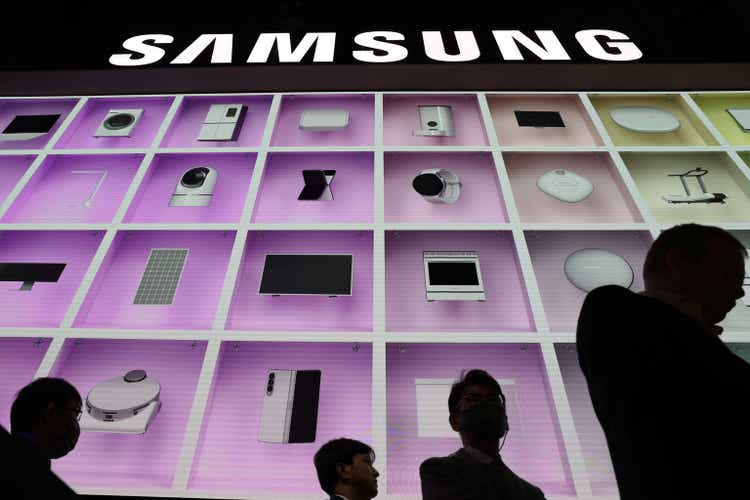
Alex Wong
Samsung Electronics (OTCPK:SSNLF) expects revenue of $100 million or more from its next batch of advanced chip packaging products in 2024, Reuters reported citing co-CEO Kye-Hyun Kyung.
The South Korean company had created advanced chip packaging as a business unit in 2023 and Kyung noted that he expects the results of Samsung’s investment to show up starting in the second half of this year, according to the report added.
Kyung, who made the comments at Samsung’s annual general meeting of shareholders, said the memory chip business intends to have a larger profit share than its market share in 2024.
To achieve this, the company aims to secure a competitive advantage in the high-end memory chips needed for artificial intelligence, or AI, including mass production of a 12-stack version of high-bandwidth memory, or HBM, chips known as HBM3E.
The tech giant’s market share in DRAM chips was around 45.5% in the fourth quarter of 2023, according to data provider TrendForce.
Kyung noted that for a future generation of HBM chips, called HBM4, which could be released in 2025 with more customized designs, Samsung will benefit from having memory chips, chip contract manufacturing and chip design businesses under the same roof to satisfy customers. requirements.
Responding to a shareholder question about the company’s recent setback in the current HBM market compared to competitor SK Hynix, Kyung noted that the company is better prepared to prevent this from happening in the future.
It was reported last week that Samsung plans to use a chip-making technology favored by rival SK Hynix as the company aims to catch up in the race to make advanced chips used for artificial intelligence.
Yesterday, SK Hynix said it has started mass production of HBM’s next-generation chip called HBM3E.
Samsung shares rose about 6% on the Korean Stock Exchange on Wednesday after Nvidia (NVDA) CEO Jensen Huang said the company is qualifying Samsung’s HBM chips for use.
Meanwhile, Kyung added that Samsung soon expects tangible results from other memory products developed for use in artificial intelligence, including Compute Express Link and in-memory computing products, the report noted.